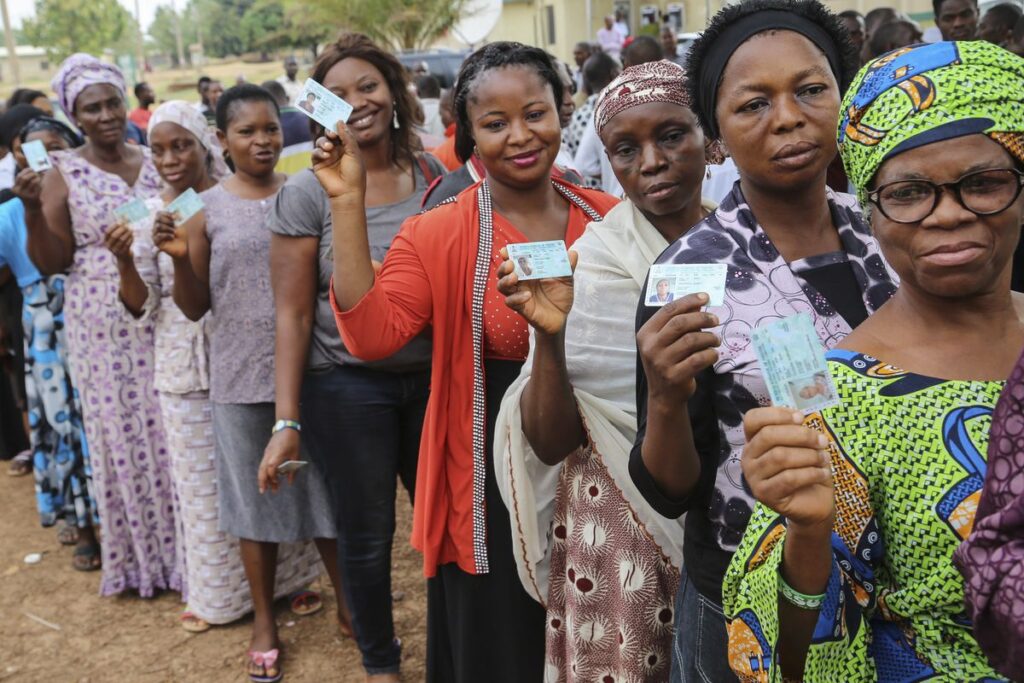
The Independent National Electoral Commission (INEC) has apparently turned its nose up at electronic voting – claiming Nigerians don’t trust our democracy enough for it to work.
They are quite right that Nigerians simply do not trust our political leaders or institutions.
But this is a classic example of “what came first, the chicken or the egg”. And I think INEC is wrong. It is not the case that a lack of trust makes digital democracy impossible. In fact, digital democracy, like electronic voting, is exactly what Nigeria needs to build trust in our democracy.
Speaking at an event in Ondo State, INEC director Nick Dazang argued: “The main issue in our election is that of trust. Once we continue to do things transparently and stakeholders, including politicians, media, political parties, observers and civil societies trust INEC, you don’t even need to use sophisticated technology for election”
Dazang claimed that electronic voting is too easily hacked to be trusted by voters.
This of course implies that putting bits of paper in a box and trusting the person watching the box to deliver it to the right place and then trusting the person counting it to count it correctly – or at all – is a foolproof and incorruptible system! If that was true, perhaps Nigerians would trust our democratic processes!
On his main point, Dazang is quite right. What Nigerian democracy needs most is urgent practical steps to address our trust crisis.
Seventy-two per cent of Nigerians believe the statement “most politicians are corrupt” describes our country well – and six-in-ten say it describes Nigeria “very well”.
Only 39% of Nigerians are satisfied with the way democracy is working in our country, while 60% say they are not satisfied.
And – probably as a result – our voter turnout is the worst in West Africa, 34.8% at the last presidential election compared to 68.6% in Ghana.
Electronic voting can guarantee confidentiality, ensure that only eligible – and LIVING – voters vote and that the votes they cast actually reflect their choices and are counted.
And as a year of remote working as a result of Covid-19 has demonstrated, software solutions allowing the secure digital transfer of confidential information are widely available and easy to use, with a year’s worth of relentless international testing to prove it!
A central element of the trust crisis in Nigeria, and across Africa in general, is an absence of credible elections.
Using new technology to address the practical problems which detract from the credibility of our democracy is an opportunity we need to seize.
Other advantages of an electronic system include the faster delivery of election results, increased trust in elections through minimisation of human error and even long-term cost savings.
This is just one of the ways we can take advantage of technology to improve the transparency of and trust in our political process – while making our democracy work faster and more efficiently.
At the digital democracy campaign I lead, we are also working to bring electors and elected closer together.
We’ve developed a free smartphone app – Rate Your Leader – to use smartphone technology to allow elected officials to interact directly with confirmed voters in the divisions they serve – and to do so in a way that makes insulting communication difficult and dishonest communication undesirable.
This way politicians and people can use Rate Your Leader to engage person-to-person, understanding each other’s needs and positions. This way, leaders can find out rapidly what matters most to the people who elect them and collaborate to address those issues. And voters can even rate their politicians for their transparency and accessibility.
And that, in turn, builds transparency and trust, which are such scarce commodities in our political process.
For INEC to be publicly spurning electronic voting is particularly disappointing following its announcement that in May 2020 that it intended to “pilot the use of Electronic Voting Machines at the earliest possible time…(and) work towards the full introduction of electronic voting in major elections starting from 2021.”
Universal electronic voting is clearly not viable in a country where many still lack access to reliable and secure internet, but there is nothing stopping us from starting down the path towards becoming Africa’s first truly digital democracy because, in 2021, democracy is digital.
More Nigerians own a smartphone than Permanent Voters Card (PVC). And as our experience of Rate Your Leader proves, it isn’t just the most effective and efficient way of conducting political activities, it’s the way that the electorate wants to carry out those activities.
Clearly, INEC is wrong- We need MORE digital democracy to build trust in our political process.
Joel Popoola is a Nigerian tech entrepreneur, digital democracy campaigner and creator of the Rate Your Leader app. You can follow Joel on Twitter @JOPopoola













